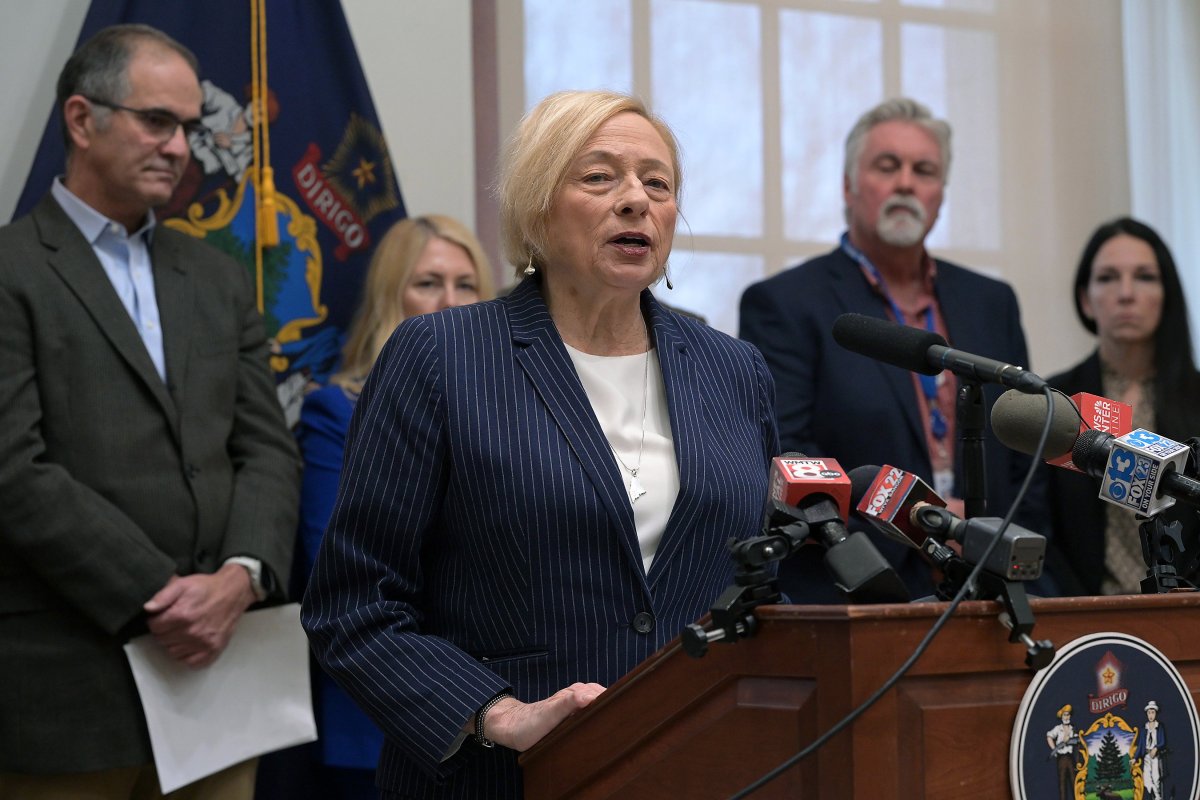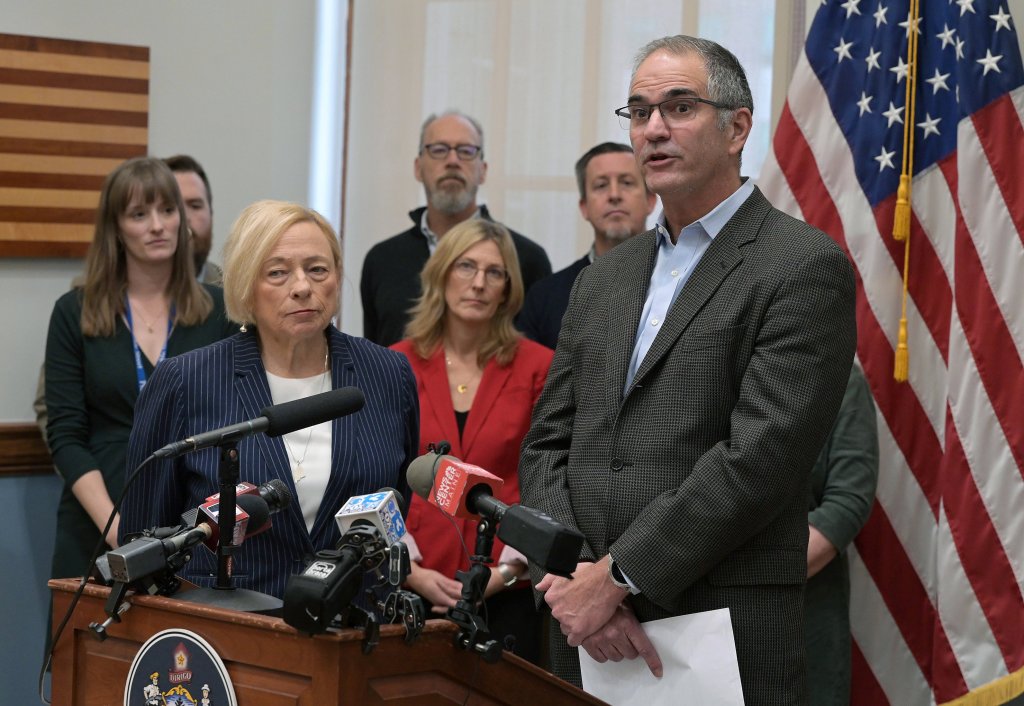
AUGUSTA — Gov. Janet Mills and state officials who work on homelessness prevention are sharply criticizing new Trump administration guidance that would cut funding for long-term housing assistance and redirect resources to transitional housing and support services.
The plans announced by the U.S. Department of Housing and Urban Development last week jeopardize more than $13.5 million in federal funding for housing assistance in Maine and puts stable housing for more than 1,200 people in the state at risk, Mills and others said during a news conference at the State House on Monday.
“This move directed by the Trump administration is callous, it is cruel, and it is unnecessary,” Mills said. She said the change is expected to increase demand for General Assistance, a state program that helps people with no other means afford rent and basic necessities, and for beds in emergency shelters.
HUD announced Thursday that it would be bringing forward “significant policy reforms and changes” as it releases $3.9 billion in grant funding through its Continuum of Care program.
In recent years, 90% of the program’s funding has gone to “housing first” programs that prioritize providing permanent, unconditional housing for people at risk of homelessness, according to the federal agency, which said that under the new guidance most funds will be redirected to transitional housing and support services.
“We are stopping the Biden-era slush fund that fueled the homelessness crisis, shut out faith-based providers simply because of their values, and incentivized never-ending government dependency,” HUD Secretary Scott Turner said in a written statement Thursday.
Dean Klein, executive director of the Maine Continuum of Care, called the changes “deeply troubling.” He said his agency currently receives more than $20 million annually to support 20 projects around the state focused on homeless veterans, homeless youth, domestic violence victims and others.
“These funds provide backbone housing supports that have helped us year after year to be effective in Maine,” Klein said. “With such an enormous reduction as HUD has redirected, our efforts will be pushed back and our ability to be responsive to those who need housing and support will be greatly diminished.”

The largest program funded by Maine Continuum of Care’s current grant is the Permanent Supportive Housing Program through the Maine Department of Health and Human Services. It provides rental subsidies to 1,270 people with disabilities and their families, while also connecting them to services to keep them successfully housed, such as treatment for substance use and mental health disorders.
Under the new cap proposed by HUD, the state could no longer serve about two-thirds of the people currently served through the program, state officials said.
Continuum of Care programs are currently present in 106 Maine communities. According to the governor’s office, more than 350 people benefit from programs in Bangor and more than 200 benefit from programs in Portland.
Klein said it’s still early to know the full extent of the impact on Maine, but said that in general the plans will mean “for sure dramatic changes and a reduction in housing.”
Grant applications are due Jan. 14.
“Our community will be putting its best foot forward based on the huge number of changes,” Klein said.
Asked Monday if the state could find a way to fill the gap, Mills said there is a limit to what Maine can do when it comes to changes in federal funding.
“It feels like not a day goes by where the federal government isn’t threatening (to cut) some other source of federal help in health care, education, housing, whatever it is,” she said. “I talk with other governors all the time (who are) asking, ‘Can we backfill all these cuts?’ Generally speaking, no. States aren’t able to backfill all the federal cuts.”
Mills said she is consulting with the Office of the Maine Attorney General about possible legal action, and said her administration will also be in touch with Maine’s congressional delegation.
Rep. Chellie Pingree, D-1st District, said in a written statement Monday that she “will do everything in my power to restore funding for these critical programs.”
“That the administration is announcing these cuts just before winter, when shelters are already overburdened and the risks to unhoused people are especially stark, makes their actions even more abhorrent,” Pingree said. “These cuts will put Mainers’ lives at risk, strain local services, and worsen our state’s already dire housing crisis. I condemn this decision in the strongest possible terms.”
Republican Sen. Susan Collins, the chair of the Senate Appropriations committee, said she has long been a supporter of the Continuum of Care program because it “delivers critical support to those in need, helping individuals and families rebuild their lives and achieve lasting stability.”
“The Appropriations Committee is currently working on the bill that provides annual funding for this important program,” Collins said in an emailed statement Monday night. “We are discussing these changes directly with the Department of Housing and Urban Development to mitigate any service disruptions and protect families in Maine and across the country from any unnecessary risk of homelessness.”

We invite you to add your comments. We encourage a thoughtful exchange of ideas and information on this website. By joining the conversation, you are agreeing to our commenting policy and terms of use. More information is found on our FAQs. You can modify your screen name here.
Comments are managed by our staff during regular business hours Monday through Friday as well as limited hours on Saturday and Sunday. Comments held for moderation outside of those hours may take longer to approve.
Join the Conversation
Please sign into your CentralMaine.com account to participate in conversations below. If you do not have an account, you can register or subscribe. Questions? Please see our FAQs.